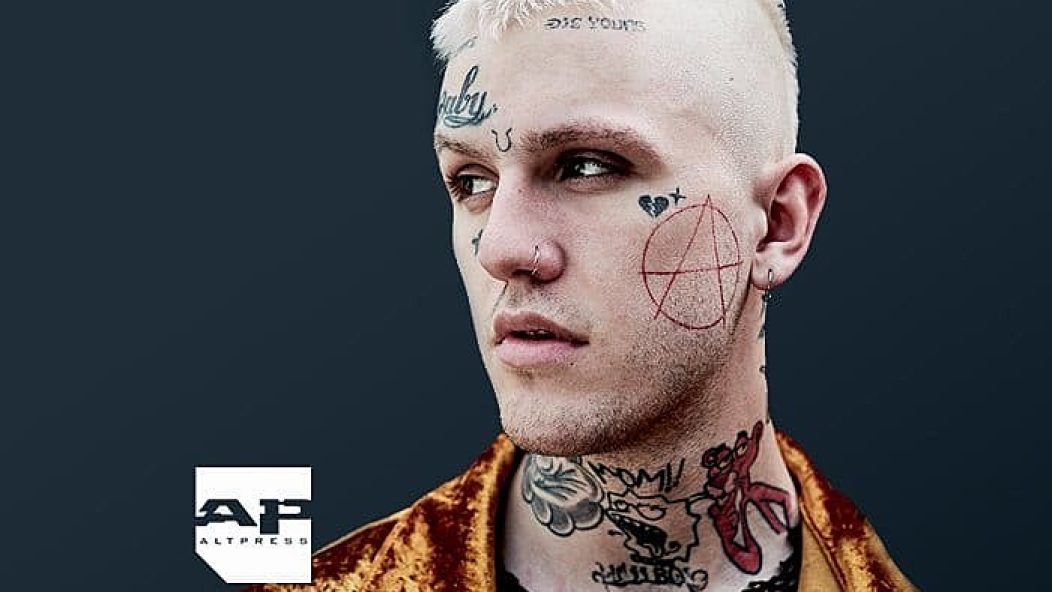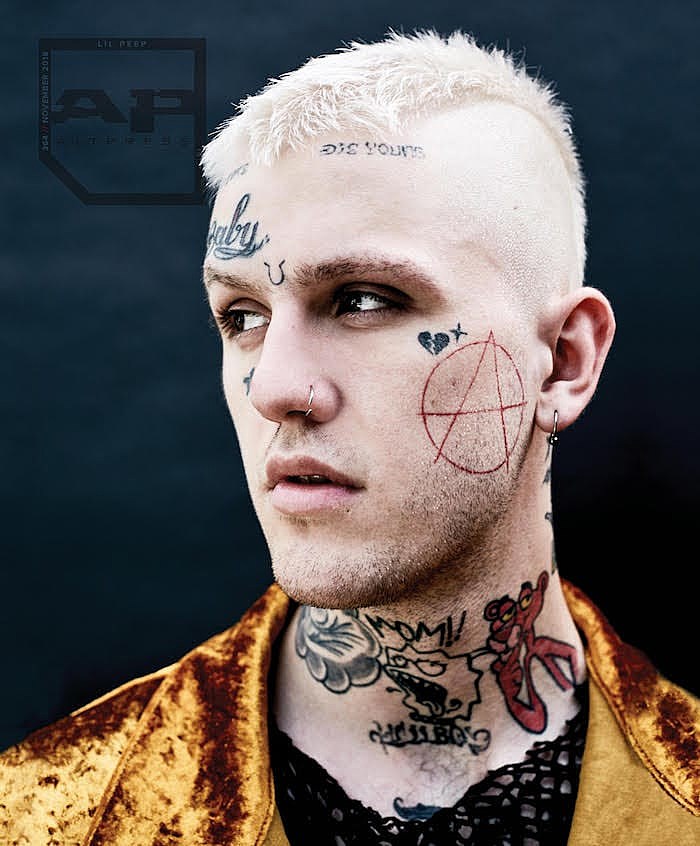
Lil Peep left a legacy of thoughtful melancholy, and didn't give a f*ck what you thought
Lil Peep first came to my attention early in 2017 when a friend sent me a link to his song “Crybaby” and asked, “Have you heard this guy?” A quick dive into his music revealed a tattooed kid singing vulnerable lyrics over trap beats and guitar samples from scene favorites. It was intriguing.
Going through the articles about him revealed a hint of shade thrown at his quickly mounting success. A tinge of, Really? This guy? That it was uncool to like Lil Peep. We’ve never really cared about that. Don’t forget that it was once uncool to love Fall Out Boy and My Chemical Romance, too. And like those artists, Peep connected with youth culture on a level that most radio programmers and music industry executives could never really understand.
And to be honest, it didn’t matter if they did: Peep had zero interest in appeasing them or the cred police, and his authenticity and refusal to follow conventions of what the world tells us is “cool” is ultimately what made him so attractive to a generation inundated with marketing campaigns telling them how they should be.
After months bombarding coworkers with every new article about him, I arranged for our staff to attend his performance in Cleveland and for Peep to visit our office the following day. As we watched him play a room packed with sweaty, screaming fans, we knew we were witnessing something special. I would imagine it was how people felt seeing twenty one pilots play a VFW hall in their early days.
When he arrived at our office with some members of his team, I remember how it took him a moment to open up. He was wearing sunglasses, a Hello Kitty pom-pom beanie and a bedazzled hoodie. He was also holding a Burger King Whopper that he carried around with him the entire time. As everyone talked in the kitchen, he sat quietly on the edges taking it all in. I went over and asked if he’d like to see the rest of our office.
As we walked down the hall with all of our covers hanging on the wall, he stopped at a Red Hot Chili Peppers issue and talked about how he always listened to them with his mom. I showed him the first issue of AP I ever bought—which was Good Charlotte—and he talked about how much he’d love to do a tour with them one day.
We didn’t know what to expect from Peep’s visit. We heard he wasn’t a big fan of doing press and sometimes he might not even show up.
But after spending a few hours talking, laughing hysterically as we filmed video interviews and toasting with orange juice and champagne that he brought to celebrate his birthday a little early, everyone was totally charmed.
As he opened up more, we saw the kind-hearted kid behind the face tattoos and sad lyrics. We saw a bright, talented young man who lit up as he spoke about all his plans for the future. We saw someone with a vision of how he wanted his art to progress through different eras and his creativity to transcend music into the realms of fashion and acting. By the time he left, we all knew there was a lot more to him than what had been previously written, and we were excited at the opportunity to work with him to tell his story.
We are thankful his family and team were gracious enough to let us honor him with this issue. We saw what all of his loving fans, friends and family did. And that is how we want him to be remembered.
RABAB AL-SHARIF
Director Of Content
ALTERNATIVE PRESS

IN THIS ISSUE
ALTERNATIVE PRESS is dedicating its November 2018 issue (AP 364) to chronicling the brief life and times of Gustav Elijah Ahr, commonly known as LIL PEEP, the artist whose ability to intersect the worlds of hip-hop, emo and DIY production ignited a new consciousness in both music and culture.
For the cover story, AP content director Rabab Al-Sharif spoke exclusively to people in Peep’s inner circle, including his mother Liza Womack. Al-Sharif details everything from Peep’s childhood to his ways of working to the sources of his inspiration while deconstructing elements of his artistic vision.
Other features in the issue include “quotable quotes” from various junctures of his career; longtime producer/close friend Smokeasac (Dylan Mullen) walking us through all of the tracks on the impending release, Come Over When You’re Sober, Pt. 2; a collection of 10 samples crucial to Peep’s creations; AP’s suggested Peep mixtape for listeners fond of the deep dive; remembrances from friends and fans including Travis Barker and Post Malone; a look at Peep’s immersion into the fashion world; as well as a special essay from contributor Jesse Richman on why Peep is inarguably a continuation of the emo canon.
All of this plus a timeline of the singer’s life; a selection of solicited fan art from around the world; and tons of photos of Peep live, in the studio and in the spaces between.









